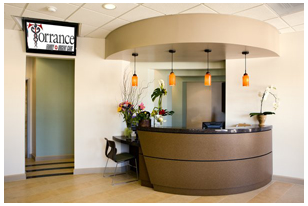Chancroids
Chancroids are small sores that may develop in the genital area as a result of a bacterial infection that is spread through sexual contact. While considered uncommon in the US, chancroids are prevalent in Africa and several third-world nations. However, this infection is becoming more widespread, and can lead to painful, swollen lymph glands and an increased risk of developing HIV.Most cases of chancroids can be successfully treated through medication with no complications, but it is important to see your doctor at the first sign of symptoms. Our doctors at Family Care Torrance are experienced in all aspects of STD care and can help restore you back to health.
Symptoms
Within a few days or weeks after infections, patients may notice one or more sores in the genital area that appear as a small, soft, raised bump. These sores most often appear on the foreskin, shaft, urethral opening or scrotum in men, and on the outer lips of the vagina or inner thighs in women. While men are likely to experience pain from chancroids, many women do not experience any symptoms and may not even be aware that they are infected. Men tend to only develop one sore, while women often have four or more at a time.
In addition to sores, nearly half of all patients with chancroids will also develop enlarged lymph nodes in the groin which can eventually turn into pus-filled abscesses.
Diagnosis
Chancroids are diagnosed through physical examination or from taking a sample of bacteria from a sore and testing for infection. This condition is often mistaken for syphilis, herpes and other STDs, so your doctor may rule out other diseases before confirming a diagnosis.
Complications
Many cases of chancroids will develop into painful, swollen and infected lymph node glands within five to eight days, which can make the condition more difficult to treat, often requiring surgical drainage and removal.
Having an active chancroid infection also increases a patient's risk of developing other STDs, including HIV. Those who already have HIV and acquire chancroids may have prolonged healing periods.
Treatment
Treatment for chancroids is often successful through antibiotics such as azithromycin, ceftriaxone and ciprofloxacin. These medications can clear the infection, relieve symptoms and prevent the spread of the disease. If you have any allergies, it is important to let you doctor know so that the most effective medication can be prescribed for your individual condition.
Most ulcers improve within three to seven days, although larger ulcers may take longer to heal. A follow-up appointment a few days after the start of treatment can help your doctor determine the duration of treatment needed. Some chancroids will improve on their own with no need for treatment, but this often leaves patients with painful lesions and the risk of spreading the disease to others.
Prevention
Similar to other STDs, chancroids can be prevented through abstinence or safe, monogamous sex. Using a condom for vaginal, oral and anal sex can reduce the risk of acquiring an infection, but do not protect areas such as the scrotum or anal area, where sores can still exist.It is important for infected patients to maintain open and honest communication with their partner in order to prevent the spread of this disease. Partners of those infected should be promptly tested and treated for infection as well.
At Family Care Torrance, we provide comprehensive treatment and prevention services for chancroids and other STDs. We understand the worry and frustration often associated with acquiring an STD, and work to help patients discover the numerous effective treatment options available for many of these conditions that cure the infection with no long-term complications.
BY APPOINTMENT ONLY

Office Hours
Monday-Friday 9am-6pm
SERVICES




